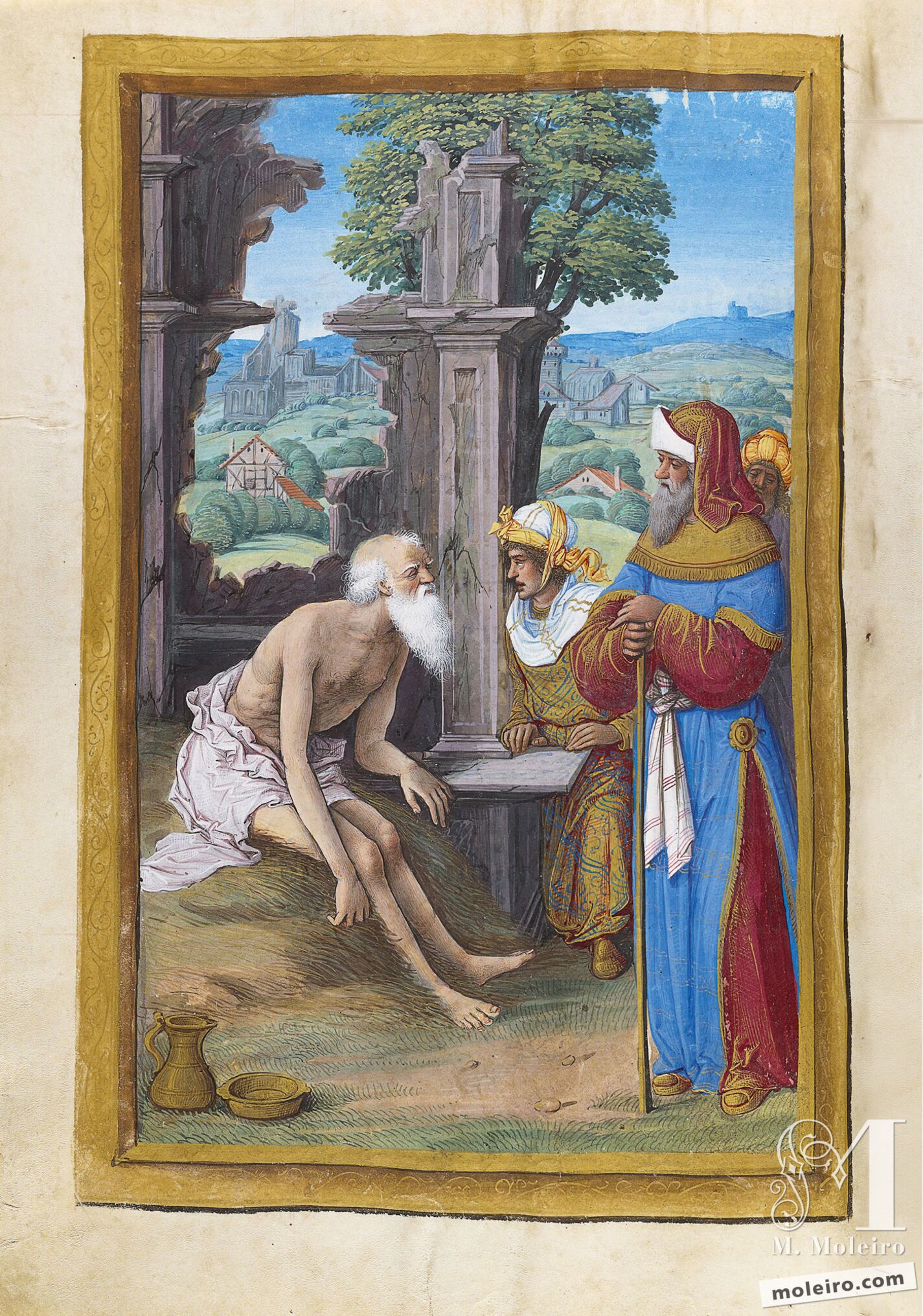In the end, Job is restored to health and prosperity. His trials and ultimate triumph are a metaphor not only for those on earth, but also for those in purgatory. Everyone hopes and prays that, no matter how tested is one’s faith and how long is one’s trial, heavenly reward will be granted by God.
Roger S. Wieck.
Curator, Medieval and Renaissance Manuscripts
The Morgan Library & Museum

In the end, Job is restored to health and prosperity. His trials and ultimate triumph are a metaphor not only for those on earth, but also for those in purgatory. Everyone hopes and prays that, no matter how tested is one’s faith and how long is one’s trial, heavenly reward will be granted by God.
Roger S. Wieck.
Curator, Medieval and Renaissance Manuscripts
The Morgan Library & Museum